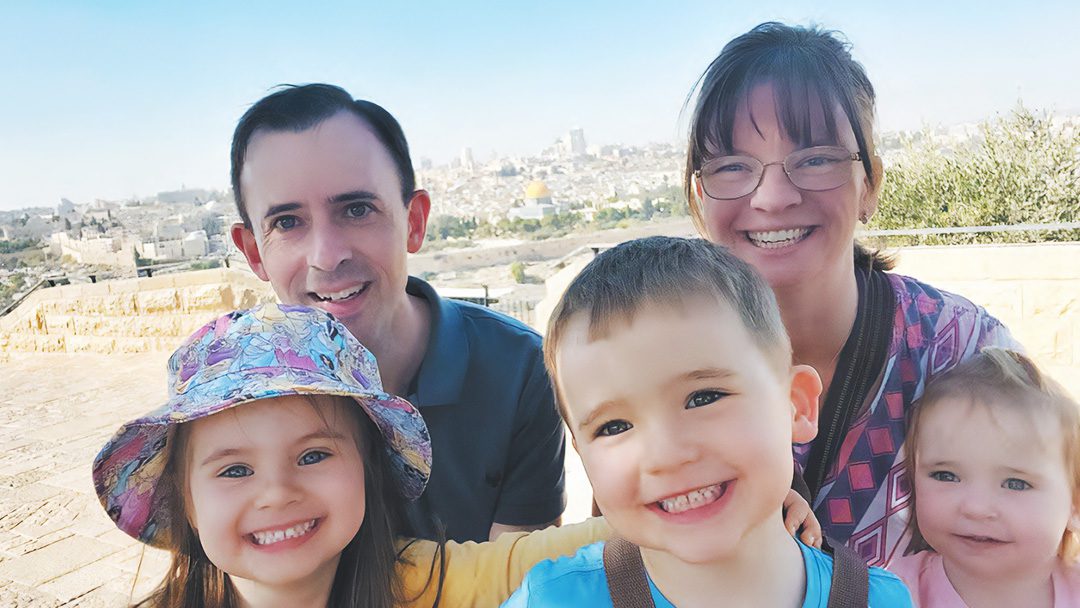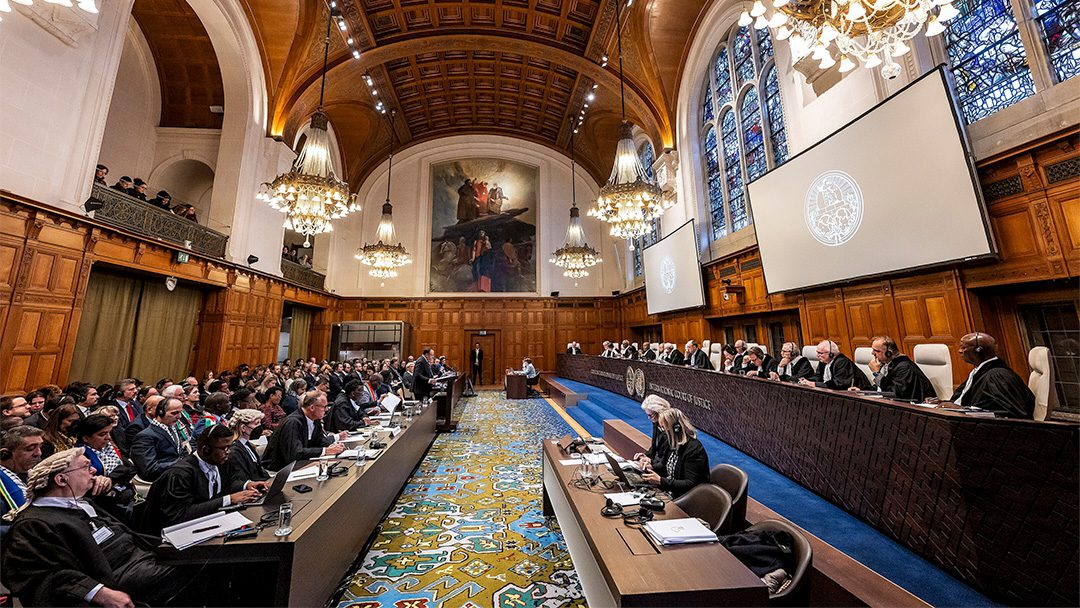Our Bible is a big book. It starts in the first two chapters describing the account of God creating the world and then creating the first man and woman and putting them in the Garden. In only the third chapter, Adam and Eve have sinned, and death has entered our existence.
In the last two chapters of the Bible—in the book of Revelation—death is gone and the World-to-Come has begun, and mankind has been recreated into an incorruptible form.
A total of five small chapters in our big Bible discuss the way things are meant to be. The rest of the entire Bible discusses man in His current state, coexisting with death, and God’s core desire to dwell with mankind and His amazing plan of love to restore that relationship.
The Bible is the very patient explanation of how God deals with death so that He can dwell with man—firstly through one nation (Israel) by means of His Presence in the Tabernacle and later the Temple administered by the priesthood.
And secondly in the final state through the redemption of Messiah.
Therefore the centrepiece of this whole story is the Messiah and what He accomplished—which is—the resurrection from the dead.
This thing called resurrection is the proof that Messiah was successful—the great laws of the heavens and universe regarding God dwelling with mankind have been satisfied—death has been defeated, and we are destined to live with God forever.
Resurrection shows that, instead of nothingness, there is a life after this one—a better one. This current life involves working alongside the original curse; managing death and decay; dealing with injustice, pain, sorrow and suffering; labouring hard just to exist.
But the resurrection gives us hope.
You have a soul of inestimable value that will go on living with God beyond this life.
Resurrection proves God’s existence and that there is life after death. This is why the devil would like to hide it, change its meaning, make it a misunderstood subject and ultimately deceive people out of entering into it.
Resurrection of the Dead Therefore is a Fundamental Biblical Belief
One of the big questions that people were asking in Jesus’ day was, is whether resurrection is mentioned in the Torah—the first five books of the Bible—the Book of Moses.
This is a very important point because the Torah is rightly considered the foundation of all scripture. The Sadducees said ‘No—the resurrection is not mentioned in the Torah’.
The Pharisees said ‘Yes—the resurrection IS mentioned in the Torah’.
Jesus said ‘Yes it is’.
And the Rabbis say ‘Yes it is’.
So Where is the Resurrection of the Dead Mentioned in the Torah?
The first verse in the Torah which speaks of the resurrection of the dead is considered to be in only the third chapter of Genesis, and refers to human beings coming from dust and returning to dust.
“For dust you are, and to dust you shall return.” Genesis 3:19
We tend to view that as meaning we were created from the dust and when we die our bodies decay and return to become dust again.
But the Rabbis look at this verse slightly differently. The Midrash and commentaries explain this verse like this: “There the resurrection of the dead is meant as saying, dust you are now, and therewith, as the same dust, or state, you will return a second time in the resurrection of the dead. Midrash Bereshit Rabbah 20:10
They see it as meaning we are a soul contained inside the dust that God formed into a human body, then we die and our soul departs, and then at the resurrection our soul will come back in to our body made of dust a second time.
The second verse in the Torah which speaks of the resurrection of the dead refers to Abraham going to his fathers in peace.
One of the big questions that people were asking in Jesus’ day was, is whether resurrection is mentioned in the Torah—the first five books of the Bible—the Book of Moses.
Now as for you, you shall go to your fathers in peace; you shall be buried at a good old age. Genesis 15:15 Rashi’s commentary on this verse says that when God says, “You will come to your forefathers in peace”, He is referring inclusively of Abraham’s father, Terah, who we understand to have been an idol merchant and worshipper.
Abraham’s father was an idolater, and He announces to him that he will come to him? This teaches you that Terah repented. Rashi on Genesis 15:15 This reveals that the Rabbis believe that Sheol is NOT ONLY the physical grave where the body goes when it dies but also the place where their soul goes when they die—making Sheol both the physical grave and the place of departed souls.
When Abraham died, his physical body was buried with his wife in the Machpelah Cave in Hebron. His father Terah, however, died and was buried in Haran 800 km away.
Therefore when the Lord promises to Abram that he would ‘come to his forefathers in peace’, it is speaking of the following:
- His future physical death
- His coming to his forefathers in Sheol (i.e., the place of departed souls) not the physical grave
- His coming to them in peace—implying that his reunion with his forefathers will be in Paradise rather than Gehenna
- That Abraham’s forefathers must also be there in Paradise, meaning that they must have repented of their idol worship and believed in God just as he had.
The third verse in the Torah which speaks of the resurrection of the dead refers to the Patriarchs who God promised would inherit the promised land, but never did so in their physical lifetime.
“I appeared to Abraham, to Isaac, and to Jacob, as God Almighty, but by My name Lord I was not known to them. I have also established My covenant with them, to give them the land of Canaan, the land of their pilgrimage, in which they were strangers.” Exodus 6:3-4
… “From where in Torah do we learn the resurrection of the dead? From the verse, “I also established my covenant with them to give them the land of Canaan. It doesn’t say ‘to give you’; it says ‘to give them’. Therefore since Abraham, Isaac, and Jacob haven’t yet received the land, the resurrection of the dead is proved from the Torah.” Talmud Sanhedrin 90b:7
For the Patriarchs to physically inherit the promised land, they must be resurrected from the dead at some time in the future.
Discover more about resurrection of the dead from The Milk Course. The Milk Course explores the six foundational principles of Messiah. You can join The Milk Course at milkcourse.org. As well you can join Ps Greg Cumming every Saturday morning from 9.30-11am AEST for The Torah Portion. thetorahportion.org












0 Comments